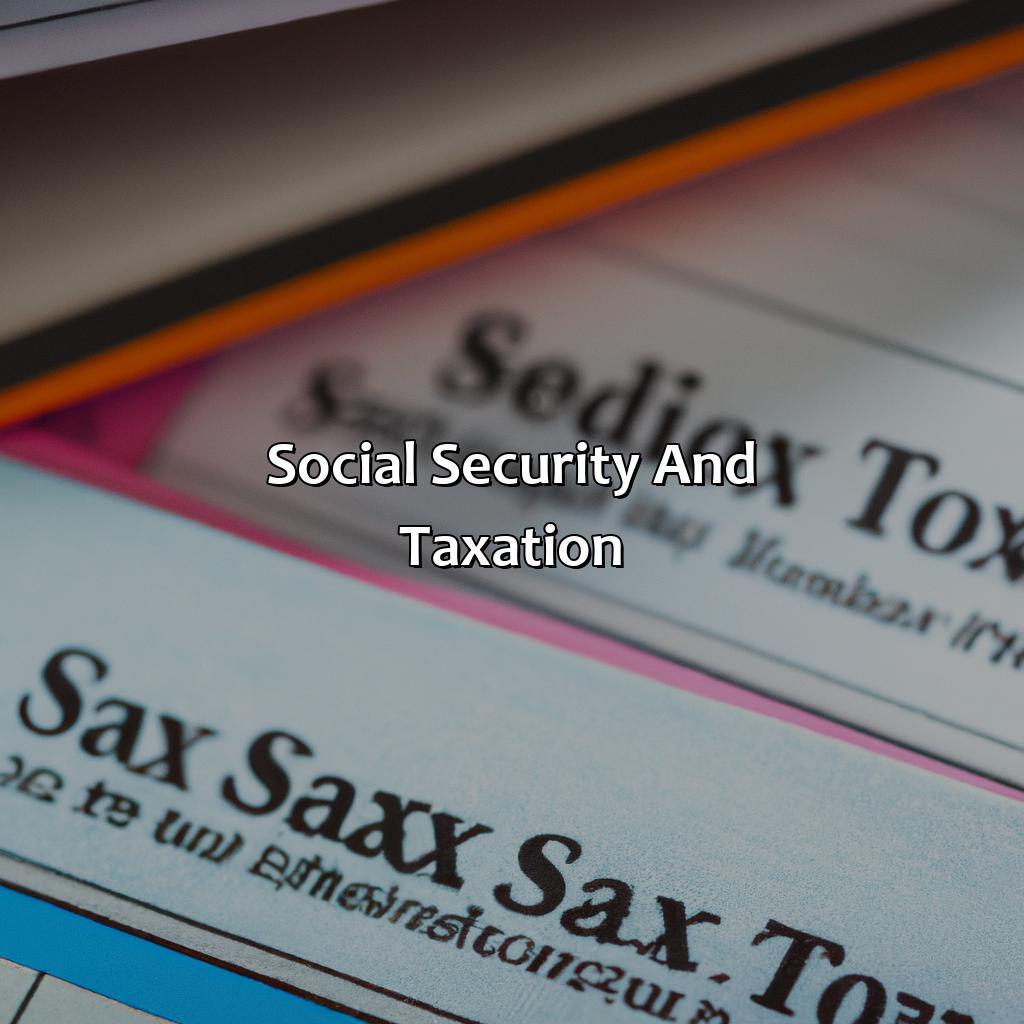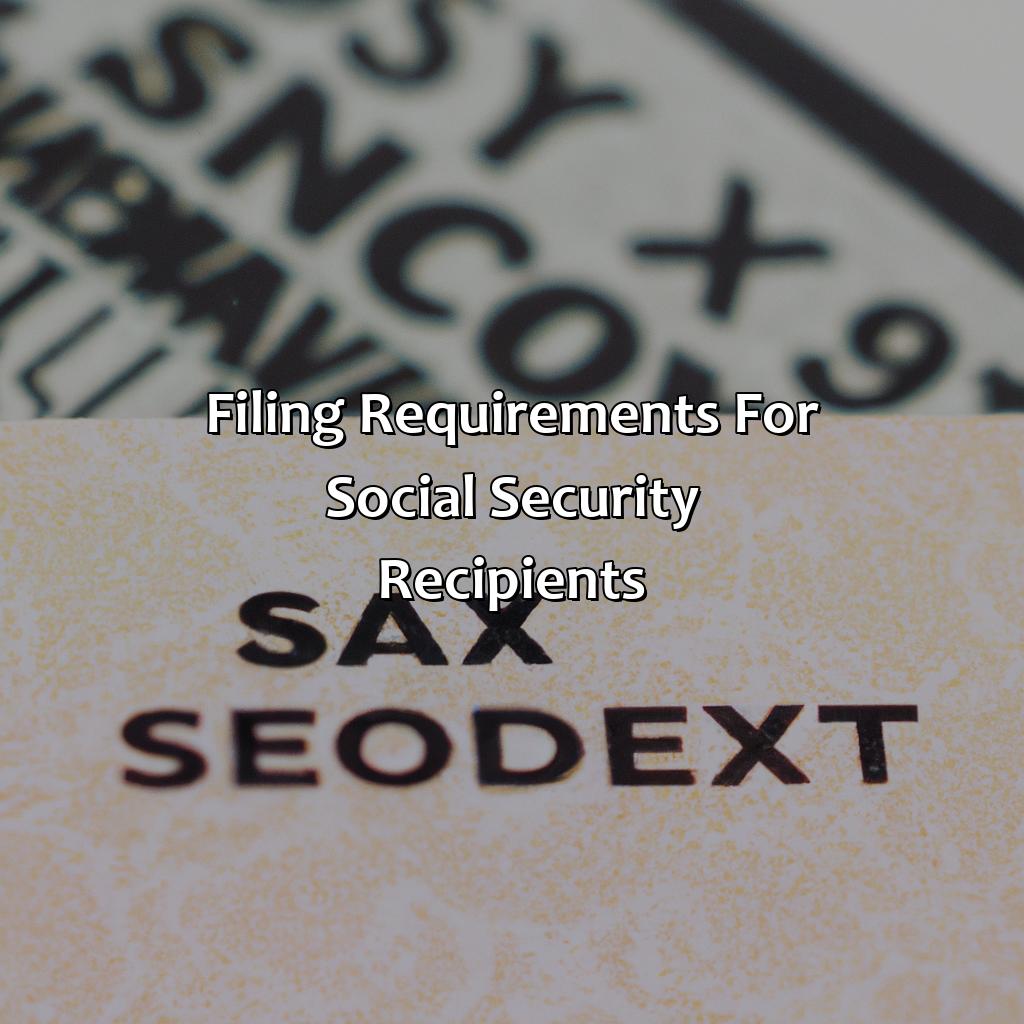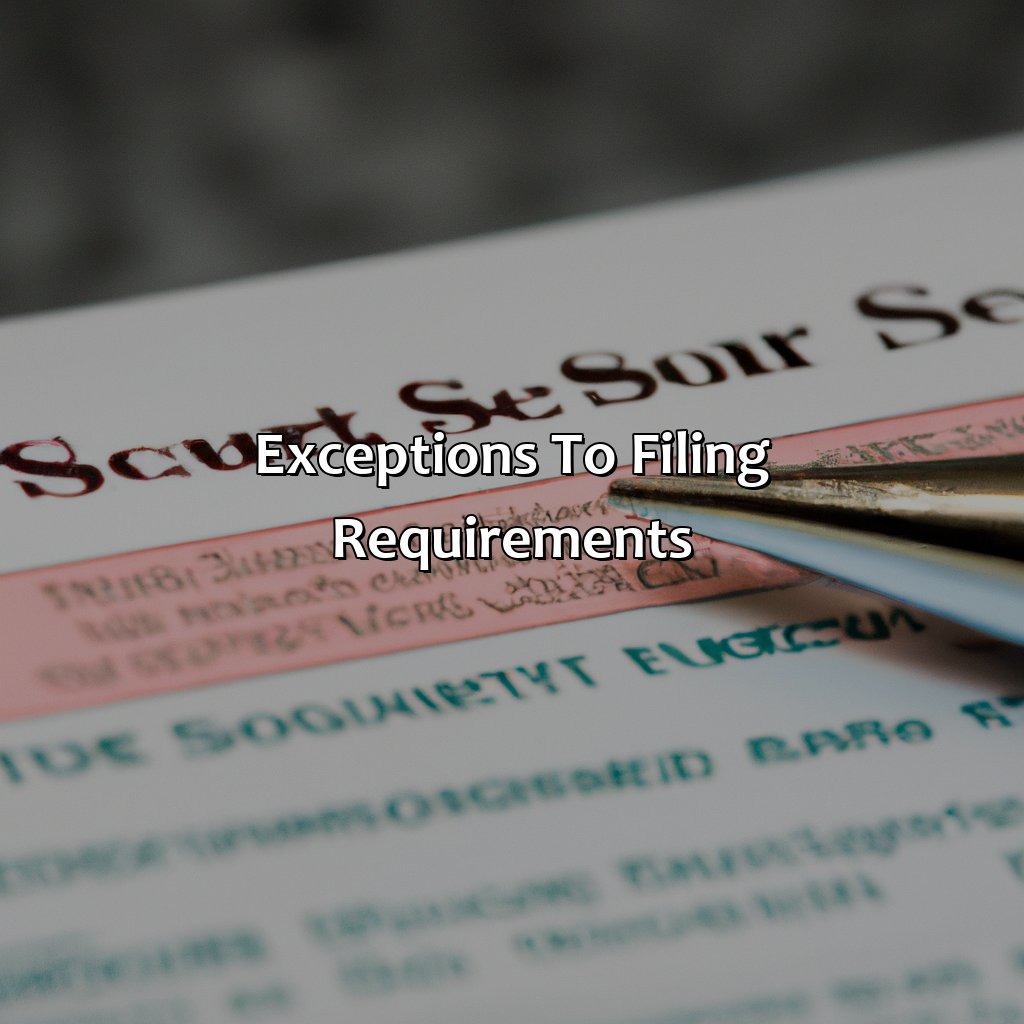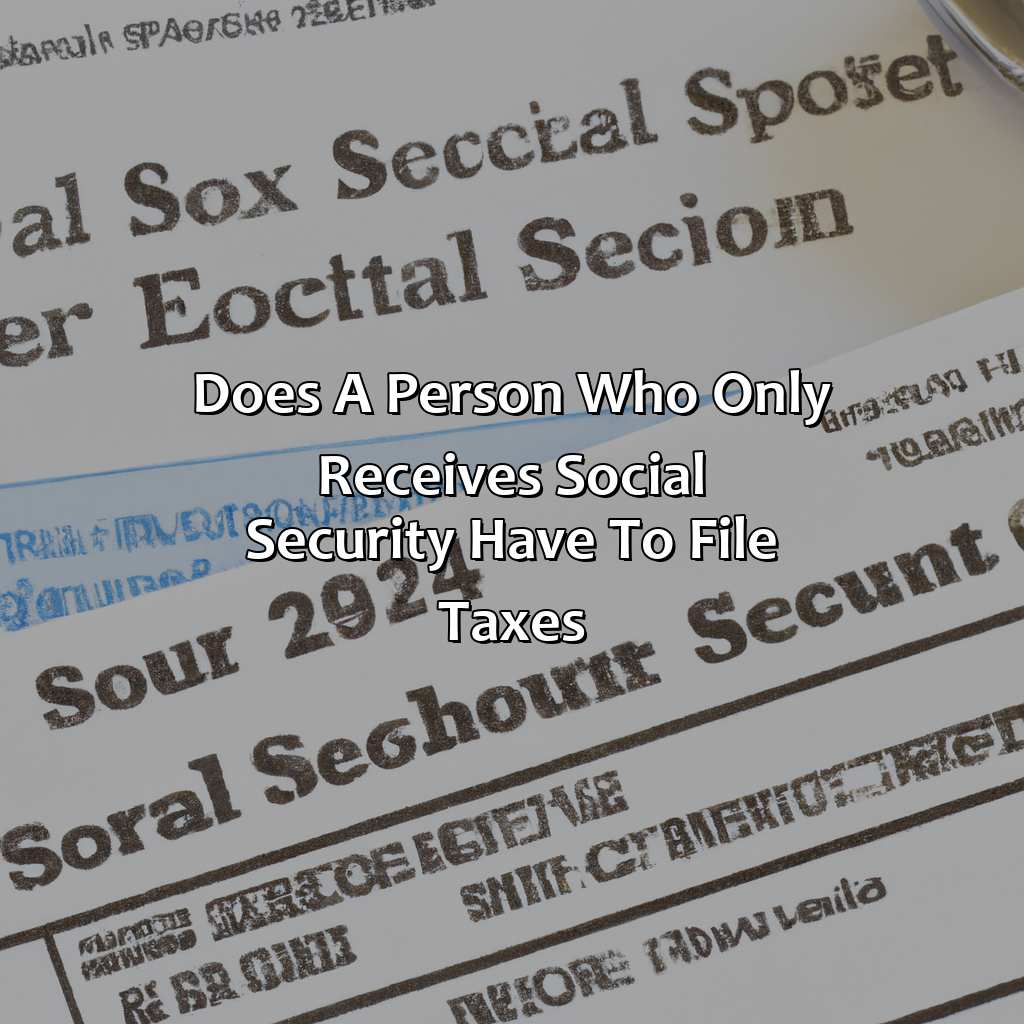Does A Person Who Only Receives Social Security Have To File Taxes?
Key Takeaway:
- Social Security benefits may be subject to taxation: If your total income exceeds certain thresholds, a portion of your Social Security benefits may be subject to federal income tax. This tax applies regardless of whether you have to file a tax return or not.
- Minimum income limits determine whether you need to file: If you are a single Social Security recipient and your income exceeds $12,200 ($24,400 for married filers), you are required to file a tax return. However, if your income is below this threshold, you may not have to file.
- Exceptions for certain income sources and dependents: There are some exceptions to the filing requirements, such as if your only income is from Social Security or if you are claimed as a dependent on someone else’s tax return. Be sure to consult IRS guidelines or a tax professional for specific details.
Tax season is here and you may be wondering if a person who only receives social security must file taxes. From complicated IRS rules to potential tax credits, understanding your obligation to pay taxes can be daunting. Learn how to determine whether you’re required to file taxes as a recipient of social security.
Social Security and Taxation
Social Security Benefits and Tax Obligations
Individuals who receive Social Security benefits may be required to pay taxes based on their income. The amount of taxable income depends on the individual’s total income, including retirement benefits, earned income, and other sources of income. If the person earns more than the specified threshold, they may have to file tax returns and pay federal income tax on a portion of their Social Security benefits.
If the recipient has no other sources of income besides Social Security, they may not have to file a tax return. However, if they receive other sources of income, such as part-time work or investment income, and the combined total exceeds a certain amount, they may have to report it and pay taxes.
It is important for Social Security beneficiaries to keep track of their income and understand if they have any tax obligations. The IRS provides guidance and tools to help individuals determine if they need to file taxes, including an interactive tax assistant that can assist with this process.
Pro Tip: If you are unsure of your tax obligations, seek assistance from a tax professional or use the IRS resources available to ensure compliance with tax laws.

Image credits: retiregenz.com by David Arnold
Filing Requirements for Social Security Recipients
Social security recipients might have to file taxes if their income exceeds a certain threshold. The requirement is determined by various factors such as filing status and the amount of their income. Generally, single social security recipients with total income of $25,000 or more may need to file a tax return. On the other hand, married social security recipients may need to file a tax return if their total combined income is $32,000 or more. Moreover, filing requirements may also vary for taxpayers who receive additional income from sources such as investments and pensions.
It is important to note that social security benefits are not always taxable, and the taxable portion depends on the recipient’s income. Additionally, those who receive only social security income and are not required to file a tax return can still choose to file if they want to claim certain tax credits or deductions.
Pro Tip: Even if social security recipients do not meet the filing requirements to file a tax return, it is still beneficial for them to keep track of their income and taxes throughout the year to make sure they are prepared for any potential changes in their financial situation.

Image credits: retiregenz.com by James Woodhock
Exceptions to Filing Requirements
In certain circumstances, filing tax returns is not required. Individuals who have minimal or no income, those who are not dependents, and elderly taxpayers with social security income below a certain threshold are exempt from filing requirements. However, if they earned income from other sources, they may need to file. Taxpayers need to be aware of these exceptions to prevent penalties and ensure compliance with the tax code. Understanding these exemptions can help in avoiding complications in the tax filing process.
It is important to note that some exceptions depend on age or other qualifications. For instance, individuals over the age of 65 are permitted a larger standard deduction. In addition, taxpayers who receive income from investments, like dividends or interest, may need to file tax returns even if they are under the filing threshold. Furthermore, if they receive social security disability benefits, tax returns may be necessary to determine if the income is taxed. It is vital to comprehend these unique factors to avoid any potential issues.
It is said that Albert Einstein did not need to file a tax return from 1913 to 1917 because his income was below the exemption threshold. However, in 1918, he filed taxes and overpaid his taxes by $32.79. Despite receiving a refund, Einstein kept the IRS refund check as a unique souvenir. This example illustrates the importance of being aware of filing requirements and to file taxes even if it is not necessary to prevent complications.

Image credits: retiregenz.com by James Washington
##Example Response:
Some Facts About Whether a Person Who Only Receives Social Security Has to File Taxes:
- ✅ If your only income is from Social Security, you generally do not need to file a tax return. (Source: IRS)
- ✅ However, if you have other sources of taxable income, you may be required to file a tax return. (Source: AARP)
- ✅ Social Security benefits may be taxable depending on your total income and filing status. (Source: TurboTax)
- ✅ You can use the IRS’ Interactive Tax Assistant tool to determine if you need to file a tax return based on your situation. (Source: IRS)
- ✅ Even if you do not need to file a tax return, you may want to do so in order to claim certain credits or deductions. (Source: Investopedia)
FAQs about Does A Person Who Only Receives Social Security Have To File Taxes?
Does a person who only receives social security have to file taxes?
Yes, if your social security benefits are your only source of income, you might not need to file a tax return. However, if you have other income, you may need to file a tax return.
What is the minimum amount of social security benefits that require filing a tax return?
If you’re single and your combined income from all sources, including your social security benefits, is at least $25,000, you will need to file a tax return. For married couples filing jointly, the threshold is $32,000.
Is social security income taxable for everyone?
No, not everyone who receives social security income has to pay taxes on it. Whether or not you owe taxes on your social security benefits depends on your total income for the year.
Can I file taxes electronically if I only have social security income?
Yes, you can file your tax return electronically even if you only have social security income. You can use the Internal Revenue Service’s Free File program or any commercial tax preparation software that is approved by the IRS.
Does the amount of social security I receive affect my tax liability?
Yes, the amount of social security benefits you receive can affect your tax liability. If your combined income, including your social security benefits, exceeds a certain threshold, you may owe taxes on a portion of your benefits.
What tax forms do I need to file if I only receive social security income?
If you are required to file a tax return because of your social security income, you will need to file either Form 1040 or Form 1040-SR. These are the two forms that the IRS uses for individual income tax returns.
